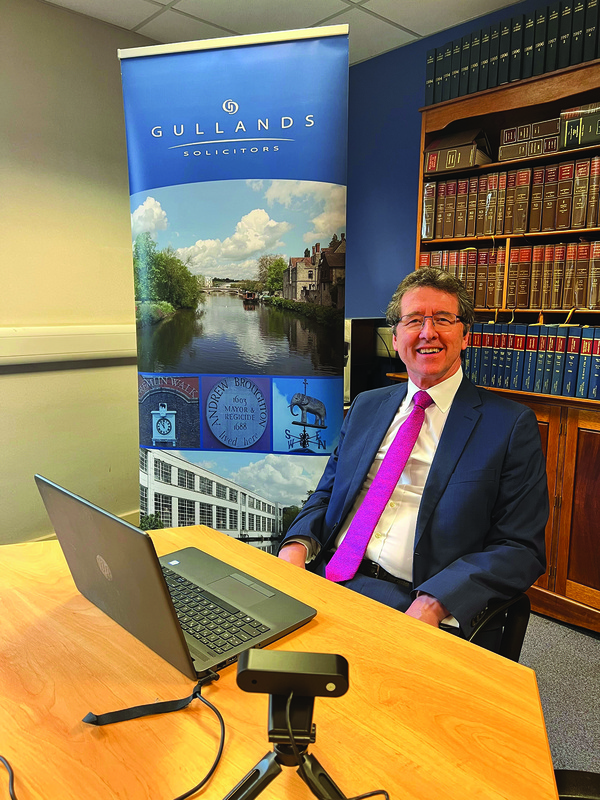Almshouse Resident issues

The Almshouse Association is a support charity representing over 1,600 independent Almshouse charities across the UK. Almhouses provide self-sufficient and low cost community housing but like many ‘landlords’ they also face a number of issues with which they have to deal.
Gullands’ Chairman Philip Grylls recently presented a webinar to approximately 200 Almshouse Association members all across the country on some of the many issues they may encounter with residents. The purpose of the webinar was to consider common challenges and how best to deal with them in the most consistent, practical, and appropriate manner.
Many of the common challenges include nuisance or breach of regulations such as antisocial behaviour, noise and disturbance to other residents, physical and verbal abuse towards other residents or contractors and staff, non-payment of maintenance contributions for their occupation, unauthorised visitors, cohabitees, or long unauthorised absences. Almshouse Trustees naturally owe a duty of care to residents and staff for their safety and they need to consider their responsibility to safeguard individual residents alongside their responsibilities to other residents who can also be impacted by the behaviour of another resident, so it is a fine line to tread.
When dealing with all cases Philip stressed the importance of carefully gathering evidence, carrying out a full and fair investigation, using mediation in suitable cases and if necessary issuing warnings, but ultimately it might be necessary to remove the resident if all other options have been exhausted.
In addition to nuisance issues, another common challenge Trustees face is dealing with residents who are no longer capable of independent living. It is always a condition of appointment of Almshouse residents that they are capable of independent living, if necessary with help from family and Local Authority care packages, as Almshouses and their staff are not equipped to provide nursing or medical care. Unfortunately, even with these additional measures, it may no longer be safe for a resident to remain and in those circumstances, the difficult decision has to be made to ask a resident to move to more suitable accommodation, which is designed for and better able to deal with their specific needs. Issues in these situations normally revolve around personal care and hygiene, the condition of the property, hoarding, refusing help and ultimately not responding to communications.
If a Lasting Power of Attorney (health and welfare and financial options are available) has been made, this can be very useful in these circumstances so that welfare and/or financial decisions can be taken by someone trusted by the resident if they no longer have capacity to make their own decisions.
It is also common to seek to involve the resident’s GP, Adult Social Care, the Local Authority, and family members. What is important in these situations is to work with all parties to secure accommodation suitable for the resident’s needs so they are kept safe.
Where a resident is admitted to hospital, perhaps for a long period, they have the right to return to their property when discharged but may need support. If the charity needs to take measures to ensure the property is habitable, these should be agreed if possible and documented.
Removing a resident is always a last resort for a charity as their primary objective is to provide a home for residents. That said, the best interests of the resident and the Trustees’ responsibilities to other residents have to be taken into account and sometimes the difficult decision is taken to ask a resident to leave. In these situations, it is advisable to seek specialist and independent legal advice. Philip has acted for many years for Almshouse charity Trustees and was involved in the last major Court of Appeal case on the status of almshouse residents.
Another common issue for Almhouse charities is in the event a resident dies without having made a Will, particularly where there may be no family who can help. Trustees, faced with such a situation have to decide how to deal with various matters including the disposal of furniture and other personal belongings left in the property. A well drafted document setting out the basis of the resident’s occupation will include a clause dealing with this but in default we can advise on the steps to take. Clearly it is simpler if a resident has made a Will to set out what happens to their estate on their death, but it is not uncommon for residents to die intestate.
Clearly Almhouses have and continue to play an important role in providing safe and affordable accommodation for some of our most vulnerable in society and Gullands continues to support the excellent work which Almshouse Trustees provide but if problems arise we are here to help.
Philip Gryllls can be contacted at p.grylls@gullands.com

 Close Menu
Close Menu




















